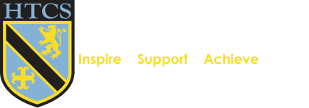Curriculum Rationale
Our curriculum principles have been designed around the educational philosophies of experts such as Mary Myatt and Dylan William. These well researched ideologies enable us to effectively serve the needs of our students as well as being true to four broad educational justifications of why we educate young people. We have carefully designed our curriculum around three areas of foci which are the intent, implementation and impact so that we can carefully consider what is being taught to our students and why. The context of our local community and the needs of our students is the driving force behind many of our curriculum decisions alongside ensuring our young people are introduced to the ‘best that has been thought and said’. Our curriculum development is ongoing and subject to continuous updating and rigorous quality control.
We believe in creating a curriculum rich in cultural capital where broad and meaningful experiences are mapped out within each subject discipline to ensure students are inspired and supported to achieve.
We do not support a narrowing of curriculum and have remained true to a traditional curriculum structure, thus ensuring the correct components are given time to embed in student long term memory ready to perform more complex tasks as the curriculum progresses. We clearly communicate our expectations on the acquisition of non-negotiable knowledge and skills at pre-determined stages and phases to ensure that our curriculum is progressive and truly rooted in the knowledge our students gain.
We recognize the importance of vocabulary in ensuring our students know more, can do more and remember more and have taken active steps to support its development across the curriculum. We aim to ensure all students, including our most gifted, disadvantaged and SEND students build their knowledge and understanding and we accept vocabulary size is crucial for academic success. Our curriculum is carefully designed so that knowledge gained does not sit as isolated Information in students’ brains but rather our aim is for it to be connected as carefully identified schemata across subject disciplines and we encourage our staff to work collectively to ensure that the right components are embedded in long term memory.
We understand our locale and have carefully selected the suite of level 2 qualifications on offer to our students to ensure meaningful progression for them and the creation of a future workforce that will benefit the regional economy.
Our curriculum aims to:
- Have students at its heart, putting their interests above those of the ins
- Have a curriculum that is fit for purpose, offering differentiation and personalisation.
- Be a centre of excellence in teaching and learning.
- Prepare all students for a successful adult and working life in a 21st century global society.
- First achieve and then exceed national standards in achievement, attainment and progress
- Be committed to excellence and continuous improve
- Ensure academic routes are accessible to all, but to place equal value on vocational routes where appropriate
- Nurture the talents of all and celebrate success.
- Work with Partner Primary Schools to ease transition
- Involve the community.
- Involve parents/carers.
- Create a curriculum where all students are inspired and supported to achieve
Our curriculum will:
- Lead to qualifications that are of worth for employers and for entry to higher education.
- Fulfil statutory requirements.
- Enable students to fulfil their potential
- Meet the needs of young people of all abilities
- Provide equal access for all students to a full range of learning experiences beyond statutory guidelines.
- Prepare students to make informed and appropriate choices at the end of KS3, KS4 and beyond
- Include the following principles: Balanced, Focused, Applicable, Challenging, Language Based, Appropriate and Coherent.
- Ensure continuity and progression within the school and between phases of education, increasing students’ choice
- Foster teaching styles which will offer and encourage a variety of relevant learning opportunities.
- Help students to use language and number effectively.
- Help students develop personal moral values, respect for religious values and tolerance of other races beliefs and ways of
- Help students understand the world in which they live
- Ensure that the curriculum incorporates, and is improved and extended by HTCS’s STEM identity
- Involve careers and progression advice
- Build on their cultural capital
- Be expertly sequenced to identify prior and future learning opportunities (schema)
- Maintain a key stage 4 curriculum which meets the needs of students, parents and wider society.
- Benefit other secondary and primary schools in the community
